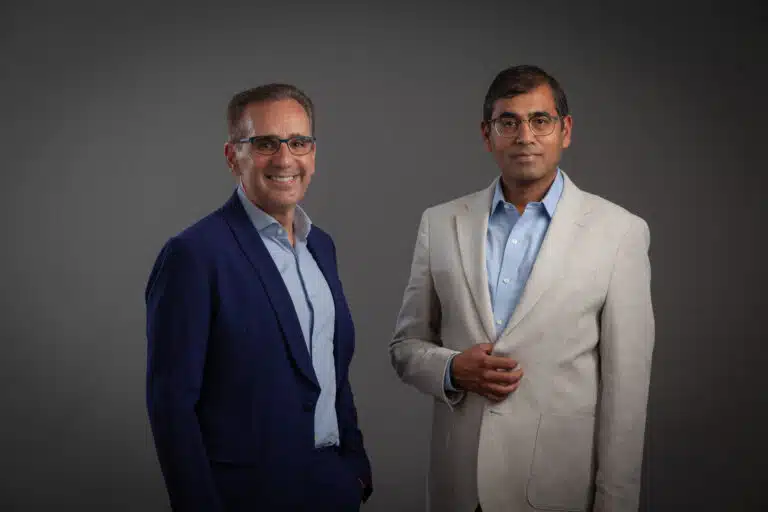The modern workplace is in a near-constant state of evolution and reconstruction. Technological advancements are transforming jobs nearly as fast as people can adapt to the changes, making on-the-job upskilling a workforce essential.
Steve Hunt, Ph.D., Chief Expert, Technology and Work at SAP, profoundly understands how technology transforms work. His research focuses on the intersection of psychology, work technology, and business performance.
In a way, he was born into it — his father is a cognitive psychologist who wrote one of the first books on artificial intelligence, and his mother was a career guidance counselor. “You put those two together, and you get an industrial/organizational psychologist,” Hunt said.
But Hunt’s path wasn’t always that clear-cut. He invented it as he went, and in the process, his understanding of technology and how it affects work completely shifted. In his upcoming book Talent Tectonics: Navigating Global Workforce Shifts, Building Resilient Organizations, and Reimagining the Employee Experience, Hunt covers how using technology, psychology, and business strategies effectively can create agile, adaptive companies.
A believer that better work environments can make the world better, Hunt shared some insights in his latest book with Eightfold AI’s Chief Marketing Officer Ligia Zamora and Senior Director of Product Marketing Jason Cerrato. Read on to learn more about his take on the future of learning and upskilling. (Ed note: Quotes and comments have been edited for length and clarity.)
A path to upskilling
Ligia Zamora: We believe people can and should try different things in their careers. What has been nontraditional about your career path?
Steve Hunt: My first “real” corporate job was as a computer programmer. I wasn’t an excellent computer programmer because I wasn’t good at all the detail orientation that goes into that.
But the thing that I was fascinated about was not so much the programming, but why we need computer programs — specifically, what you’re trying to do to improve work. So I started trying to understand: Why do we need technology? What are we trying to do with it? That led me to psychology.
When I got my Ph.D. in industrial/organizational psychology, I had all this knowledge about why people do what they do at work and then sort of ran headlong into the fact that nobody used it. So if you look at strategic HR technology, it takes knowledge out of the Journal of Applied Psychology, packages it up, and puts it into the hands of managers and people so they can use it.
I sometimes use the analogy between HR technology and what GPS technology did for maps. We’ve had maps for a long time, but we didn’t use them. GPS took all this knowledge and packaged it up so that people could get around the world more effectively, as opposed to the old paper maps we used to have. [Click to Tweet]
Jason Cerrato: Can you give a quick history lesson on how we got from learning programs based around compliance to the shift to employee experience, and finally to people focused on upskilling?
S.H.: It starts with understanding the fundamental nature of how work has changed. Two significant shifts are driving this change.
One is the digitalization of everything, which is accelerating the rate of change in organizations. Increasingly, we aren’t hiring people for what they know—we’re hiring them for what they’re able to learn. No matter what kind of job you’re in now, it will change over the next two or three years in either a small way or a massive way. Suddenly, companies have to say, “How can we manage people to deal with this accelerating rate of change?” That’s forcing more focus on learning.
The other thing is demographic shifts. For the first time in history, more people are aging out in many labor markets than entering. So this means the traditional, “Oh, we can go find qualified people,” isn’t necessarily true anymore. Now, companies say, “We have to focus more on hiring for potential as opposed to qualifications.” So we need to manage for adaptability and get much better at building our talent.
The one thing that isn’t changing about work is the fundamental psychology of people. There are differences in attitudes and communication styles, but we don’t evolve that fast. So if you want to know where technology is going, understand the psychology of people. We increasingly build technology so people can tap into their natural capabilities.
There’s a myth that people aren’t good at change. That’s completely wrong. The competitive niche of humans as a species is our ability to adapt to changing environments. We are really good at it.
Related: Learn more about how DICK’S Sporting Goods is implementing a culture of upskilling and learning — and their results
J.C.: How do you see technology helping to inform people on what to learn?
S.H.: I think it starts with looking at the context, ensuring you’re designing jobs in a way that encourages learning if not outright requires it.
There’s an old saying: “Employee development is the employee’s responsibility.” Yeah, but it’s the responsibility of the company to create an environment where they can develop, at least if you want an agile, adaptable workforce.
We are most productive when we’re doing stuff we already know how to do. It’s not fun, but you’re really productive when you’re doing the same thing over and over again. The good news is that we’re automating those repetitive tasks. So we’re asking people to do this stuff that isn’t repetitive, but that’s what requires learning.
Psychologically, we need to expose the reason for learning, which is why it’s crucial to hire people into jobs because they haven’t done it before, but you believe they could. So give people job assignments to say, “Hey, this is an important goal. I’m not going to give it to the person who’s already done this five times. Instead, I’ll give it to the person that could do it. And make sure managers are rewarded for developing people, too.
So, it’s funny you talk about learning technology. I’d say learning technology starts with talent management technology.
J.C.: You said this discussion reminds you of what GPS did for maps. How do you see HR technology helping people identify aspirations and potentially managing, setting, or driving expectations?
S.H.: Eightfold is leading on the whole concept of skills. Using the GPS example, skills are not a new thing. We’ve had skills, taxonomies, and definitions for years, but nobody ever used them because they were locked up in Excel spreadsheets intended to be very hard to use and awkward.
If you look at what artificial intelligence and machine learning tools are doing to the field of skills and skills ontologies, it’s like what GPS did for maps. It’s taking this knowledge and allowing us to more quickly update these things on the fly organically, like how Waze updates traffic patterns on the fly organically. As a result, it will enable employees to get much better insight into possible career paths in real-time. It also allows companies to understand better, “Wow, if you had this skill, then you could move into that role.”
L.Z.: What’s your advice for HR people who want to establish or build a culture of continuous learning?
Design jobs with the idea that we will hire people not based on what they know but on what they could learn.
J.C.: Do you think we’re past the point of hiring people for jobs because they’ve already done that job?
I don’t think we’re past that point. Sometimes you just need people to come in to get stuff done but recognize that that’s a kind of a transactional hire, and often that is being done through contractors now, where it’s more short-term.
If you’re a company that wants to engage people and have people long-term, you want to have a job where they feel a sense of development and challenge.
We don’t want people thinking of employees as fixed assets. Instead, we want to constantly think of employees as something changing and growing over time.
Listen to Eightfold AI’s podcast, The New Talent Code, to hear the entire conversation.



